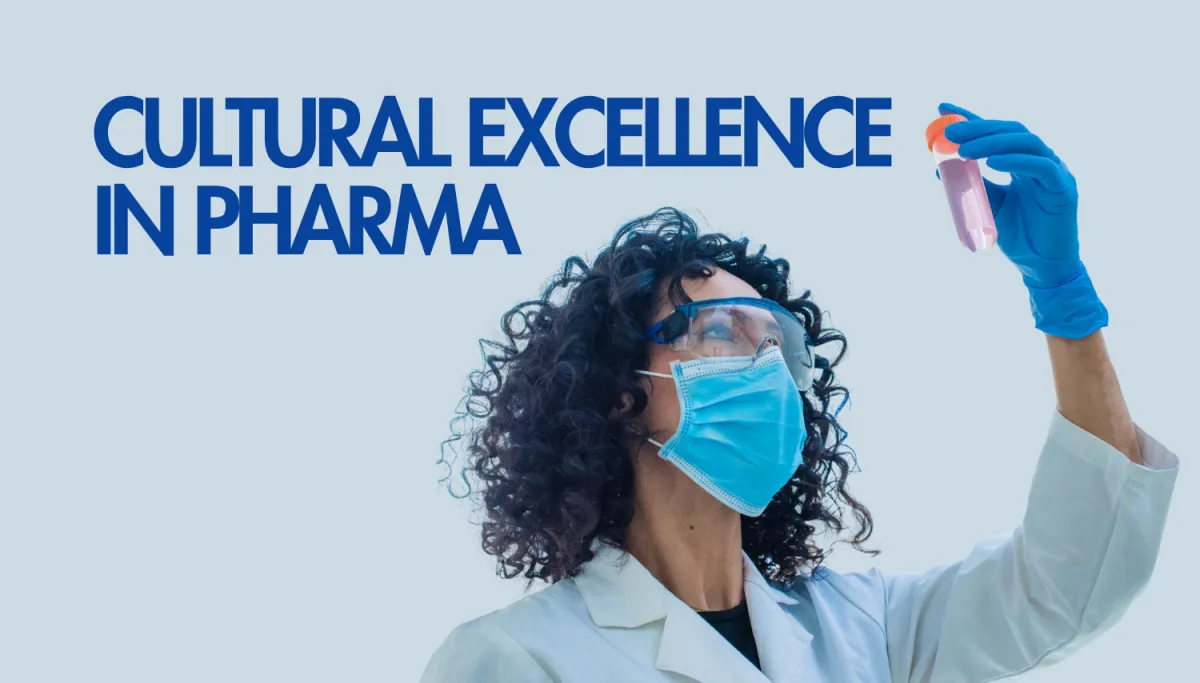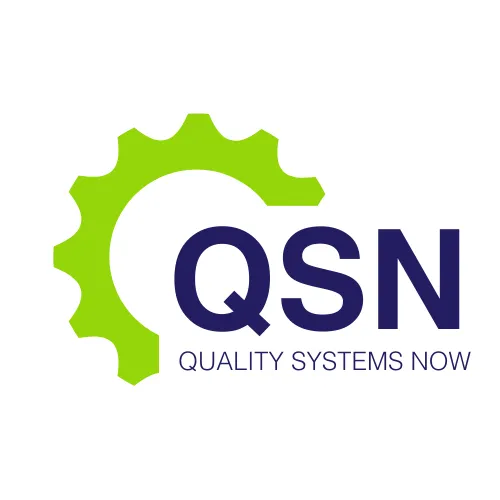LATEST NEWS

Cultural Excellence in Pharma
Cultural excellence—an organization-wide commitment to quality, ethics, and continuous improvement—has emerged as a critical determinant of long-term success in pharmaceutical manufacturing, biotechnology, and quality control laboratories. A robust quality culture drives consistent Good Manufacturing Practice (GMP) compliance, minimizes regulatory risk, and supports innovation without compromising safety or efficacy.
Regulatory authorities including the U.S. Food and Drug Administration (FDA), the European Medicines Agency (EMA), and Australia’s Therapeutic Goods Administration (TGA) have increasingly emphasized the role of quality culture in achieving sustainable compliance. Quality Systems Now, as GMP and regulatory compliance specialists, recognises that technical systems alone cannot ensure product quality and patient safety. It is only when cultural excellence permeates every level of the organization that compliance becomes a natural outcome of operations, not merely a regulatory obligation.
Defining Cultural Excellence
Cultural excellence in the pharmaceutical sector refers to the collective behaviours, values, and attitudes that prioritise product quality, patient safety, data integrity, and regulatory compliance. It is characterised by leadership commitment, transparent communication, employee engagement, accountability, and a proactive approach to identifying and mitigating risks.
Unlike a compliance culture, which focuses primarily on meeting regulatory minimums, a culture of excellence seeks to exceed expectations, continually improve processes, and ensure that ethical decision-making is embedded in day-to-day operations. This shift in mindset aligns with the International Society for Pharmaceutical Engineering (ISPE)'s cultural maturity model and the PIC/S (Pharmaceutical Inspection Co-operation Scheme) emphasis on “quality mindset” in its GMP guidance.
The Regulatory Case for Quality Culture
Global regulatory bodies have consistently reinforced the role of culture in GMP compliance. The FDA's 2011 guidance on “Quality Systems Approach to Pharmaceutical CGMP Regulations” explicitly acknowledges that a strong quality culture is essential for preventing quality failures. More recently, the FDA's Case for Quality initiative advocates for proactive quality systems that go beyond regulatory mandates and foster innovation.
The EMA has similarly highlighted quality culture in its “Reflection Paper on GMP and Marketing Authorisation Holders,” suggesting that systemic failures are frequently rooted in poor cultural practices rather than technical deficiencies. Australian regulators under the TGA also consider cultural attributes when evaluating site inspection outcomes, particularly with regard to data integrity, batch release practices, and deviation handling.
Auditors and inspectors increasingly evaluate cultural indicators such as employee empowerment, openness to raise deviations, and whether quality is prioritised over output during batch execution. Sites that exhibit cultural excellence are more likely to receive positive inspection outcomes and maintain their licensure with fewer regulatory interventions.
Key Pillars of Cultural Excellence
Achieving cultural excellence in pharmaceutical operations requires attention to multiple, interconnected dimensions. These include:
Leadership and Governance
Effective leadership is foundational to shaping a culture that prioritises quality and integrity. Executive management must visibly and consistently model ethical behaviour, support the quality function, and allocate adequate resources for training, risk mitigation, and process improvement. Governance structures should ensure that quality metrics are reviewed at the highest levels and that quality objectives are integrated into corporate strategy.
Leaders must not only enforce compliance but inspire a sense of ownership and pride in producing safe and effective medicines. Quality should not be a department, but a shared responsibility embraced by every function.
Employee Engagement and Training
An engaged workforce is critical to sustaining cultural excellence. This begins with comprehensive onboarding and continues through role-specific GMP training, data integrity awareness, and human error reduction strategies. Training must be ongoing and designed not only to convey knowledge but to instil values and critical thinking.
Moreover, employees should feel empowered to speak up about potential risks, deviations, or unethical conduct without fear of retaliation. Establishing clear channels for communication and response encourages transparency and helps identify systemic issues before they escalate.
Communication and Transparency
Consistent, clear, and honest communication supports a high-performing quality culture. Management should regularly communicate the importance of compliance, share lessons learned from deviations, and celebrate quality achievements.
Transparency is particularly important in managing errors and deviations. A blame-free culture that encourages learning from mistakes, rather than concealing them, is a hallmark of mature pharmaceutical organisations. Deviations should be thoroughly investigated, and root causes addressed with corrective and preventive actions (CAPA) that are realistic and sustainable.
Risk Management and Continuous Improvement
A quality culture embraces risk-based thinking and continuous improvement. Rather than reacting to problems, organisations should proactively identify risks through tools such as Failure Mode and Effects Analysis (FMEA), hazard analyses, and trend evaluations.
Data generated across the organisation should be used to monitor key performance indicators (KPIs), detect early warning signals, and support timely decision-making. Continuous improvement initiatives such as Lean, Six Sigma, or Kaizen can be integrated into GMP systems to optimise quality and efficiency simultaneously.
Data Integrity and Ethical Behaviour
Data integrity breaches are often symptoms of deeper cultural failings. A culture that tolerates data falsification, backdating, or procedural shortcuts poses significant regulatory and ethical risks. Therefore, cultivating a zero-tolerance policy for data integrity violations is essential.
Staff must understand not only what is expected but why accuracy, completeness, and contemporaneous data are essential. Regular audits, spot checks, and open discussions about real-world data integrity failures (e.g., from FDA warning letters) help reinforce these expectations.
Measuring and Sustaining Cultural Excellence
Cultural excellence is not easily quantified, but several tools and indicators can be used to assess maturity. These include:
Surveys and anonymous feedback: Regular staff surveys can reveal attitudes toward quality, leadership, and organisational support.
Deviation reporting rates: A higher-than-average rate of deviation reporting may indicate a healthy culture where issues are openly discussed.
CAPA effectiveness: Measuring the recurrence rate of deviations linked to past CAPAs can gauge the depth of root cause analysis.
Inspection outcomes: Fewer critical observations and positive inspector commentary may reflect strong cultural foundations.
Cultural assessments can also be integrated into internal audits, management reviews, and strategic planning sessions. It is important to view cultural improvement as a long-term journey, not a one-time initiative.
Role of Consultants and External Experts
External GMP and regulatory consultants such as Quality Systems Now can play a pivotal role in diagnosing cultural gaps and supporting improvement. Through objective assessments, training workshops, audit preparation, and compliance remediation plans, consultants can offer both strategic insight and practical support.
Their external perspective allows for a candid evaluation of cultural challenges that may be invisible to internal stakeholders. By partnering with leadership and quality teams, consultants can help embed cultural excellence into the DNA of the organisation.
Secure Your Free Copy of "Beyond Compliance"
In the pharmaceutical sector, cultural excellence is not optional—it is a prerequisite for sustainable compliance, product quality, and patient trust. It goes beyond SOPs, validations, and inspections to the core values and behaviours of the people who manufacture, test, and release medicines.
Organisations that embrace cultural excellence are more resilient, more innovative, and more likely to meet the expectations of regulators and patients alike. As the industry continues to evolve with new technologies and regulatory expectations, the human and cultural elements of quality will remain as vital as ever.
Building and sustaining a culture of excellence requires leadership commitment, empowered employees, robust communication, and a willingness to learn from both success and failure. It is an ongoing process—but one that pays dividends in compliance, reputation, and, most importantly, public health.
